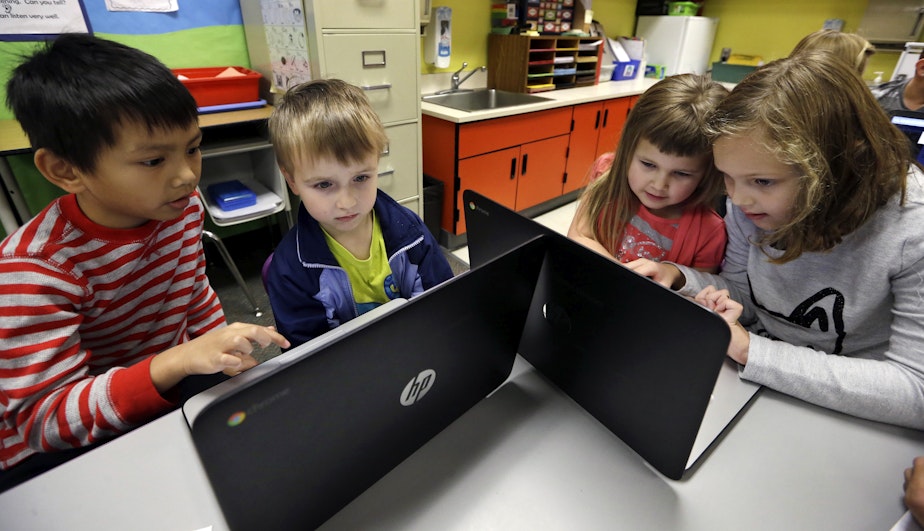Washington preschoolers are falling behind in wake of pandemic

Fewer children in Washington state are where they should be, developmentally, now compared to 2019.
That's according to new data showing just how much of an impact the Covid-19 pandemic had on preschoolers.
In 2019, 79% of children who completed developmental screenings were where they should have been for their age, according to the state Department of Children, Youth, and Families.
In 2022, though, that number dropped to 62% of children.
"And that makes a real significant difference in the classroom when you have that many kids who are so far behind," said Katy Warren, deputy director of the state's Head Start and Early Childhood Education and Assistance Program (ECEAP). "How do we do curriculum and organizing the classroom when we've got some kids at 2-year-old-level and some kids at 5-year-old-level in the same classroom?"
The answer won't come easily.
Sponsored
ECEAP notes several developmental challenges beyond curriculum:
- Fewer children in the classroom may be potty trained.
- Children may not be able to play cooperatively and share, or they may not be able to communicate with other children.
- Children may lack social-emotional skills, leading to behavioral issues.
And the challenges may be more pronounced among low-income children and families, particularly people of color, who were disproportionately impacted by the pandemic.
Getting kids back on track will likely take years. In the meantime, though, Warren and ECEAP is turning to the state budget — which lawmakers are negotiating in Olympia — to get more teachers and state dollars into classrooms.
"We have a lot of experience in doing more with less, but people don't always accept less," Warren said. "We all pay in the end if we don't make sure that kiddos are really set up to succeed."




